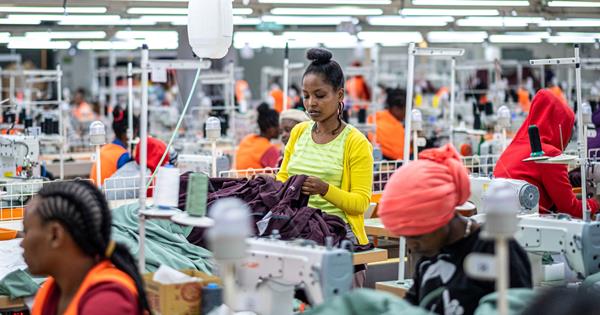It’s 2022 and yet still, the creation of ethical, conscious fashion seems like an anomaly.
Per the report, 13 hour days and total earnings of $85 a month was commonplace for factory workers behind some of the brands.
Sustainability-wise, the report also revealed that 40 per cent of companies can’t name the suppliers of their raw materials, nor have they established a means to trace them.
But while the culture appears to be shifting, the report reveals that some companies aren’t willing to budge.
The report, which is renowned for slapping well known retailers with an ‘F’ grade for unethical practices, has adapted its ranking system this year by ranking brands with a score out of 100. The score takes into account six key issues: the tracing of materials, remediation of labour exploitation, payment of living wages, support for worker voice and empowerment, use of sustainable fibres, and commitment to climate action.
Of the 581 brands it assessed, its lowest performers included Shein, Windsor Smith, Sheike, Novo Shoes, Bardot and Nine West, which each received scores below 10.
The report also took into account each brand’s commitment and action for emissions reductions comparable to the UN’s recommendations. Only 15 per cent of brands produced sufficient evidence to prove they were aligned with this.
The report did celebrate the brands that are taking active steps to do it right, with Sydney based company Mighty Good Basics coming out on top with a score of 86.
The company’s goal is to become fully circular by 2025, collaborating with small-scale, ethical cotton farms, as well as producing its goods at Rajlakshmi Cotton Mills, an Indian-based factory known for its ethical production of certified organic and Fairtrade cotton garments.
Rounding out the top 10 was renowned outerwear company Patagonia, AS Colour, Inditex, Adidas, Puma, Hanesbrands, Rodd & Gunn, Nudie Jeans and Kmart and Target Australia.
In addition, a study by two researchers at the University Of Tasmania found that the online second hand market is predicted to grow from $7 billion in 2019 to $36 billion by 2024.
So while a number of major brands continue to produce clothing in unethical, excessive fashion, that expectation of consumption might not align with consumer habits for much longer. Here’s hoping, anyway.


